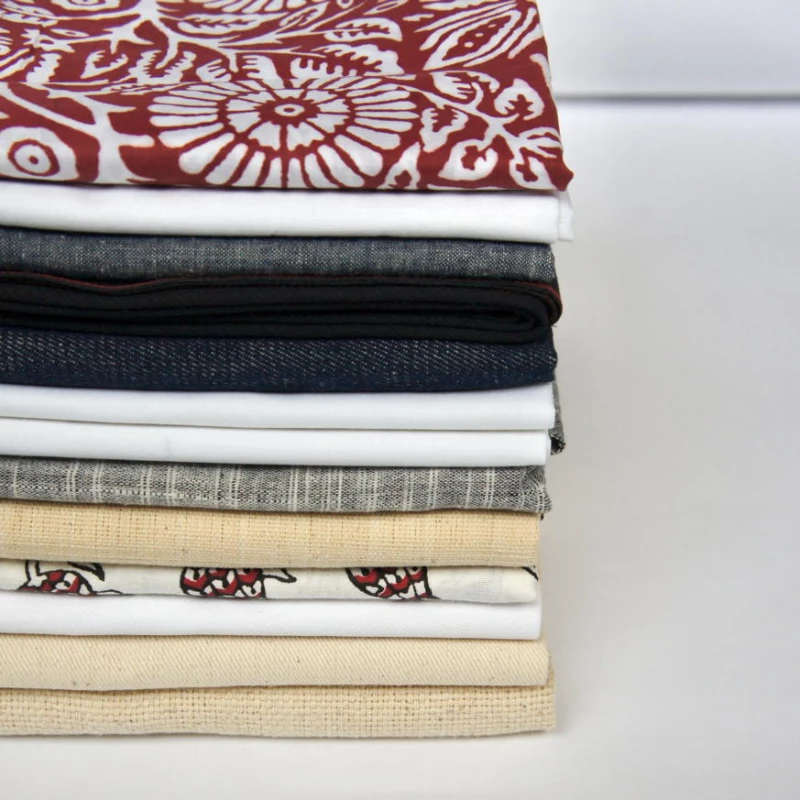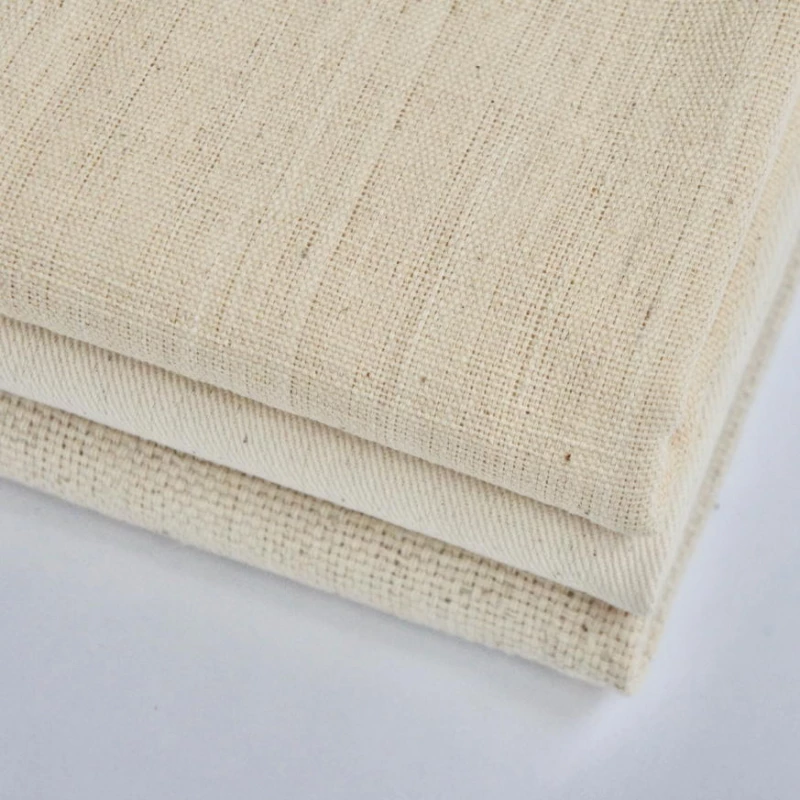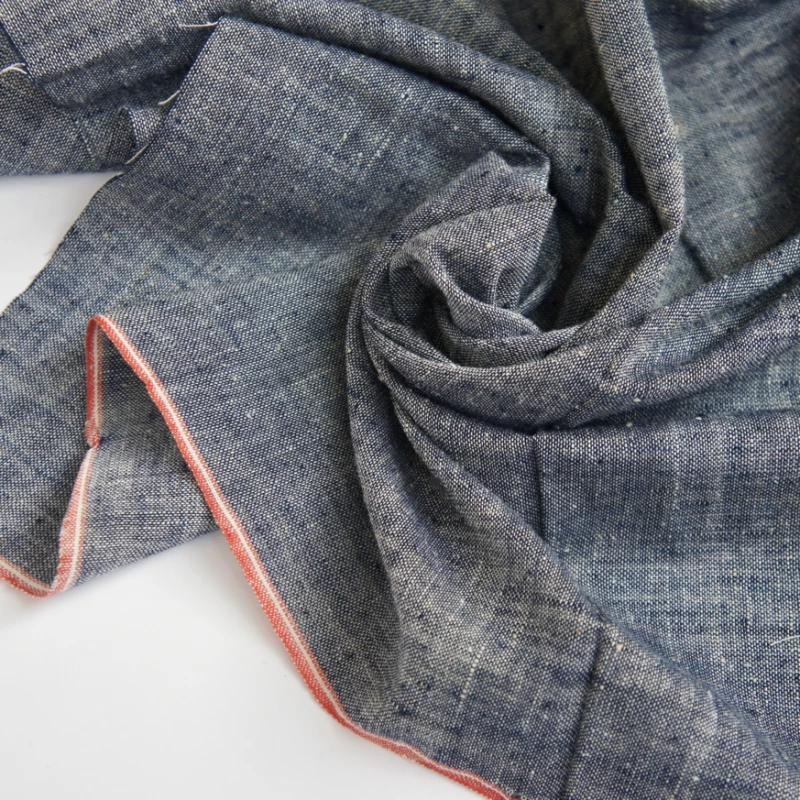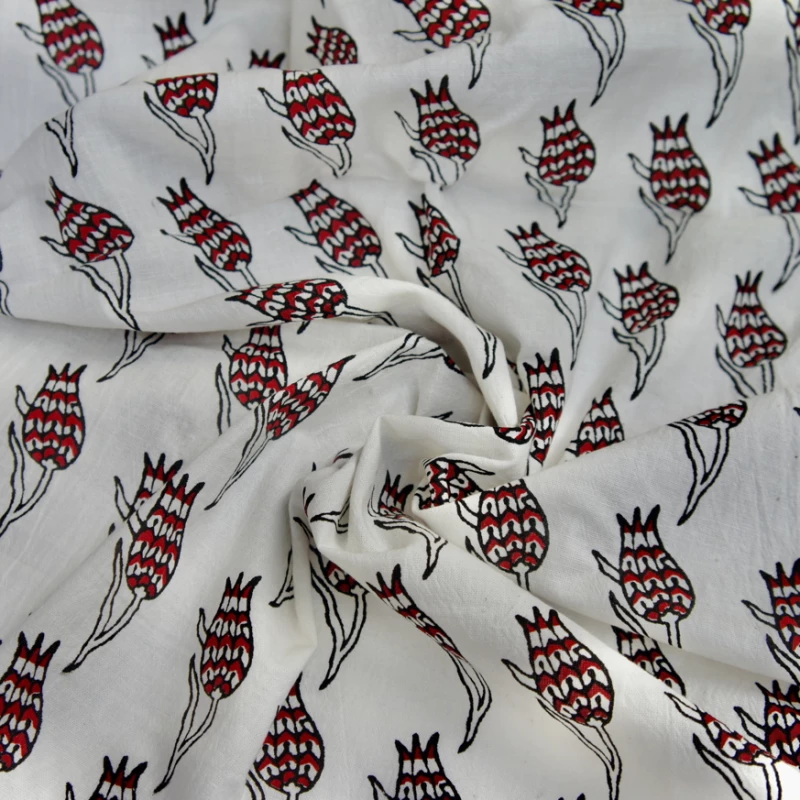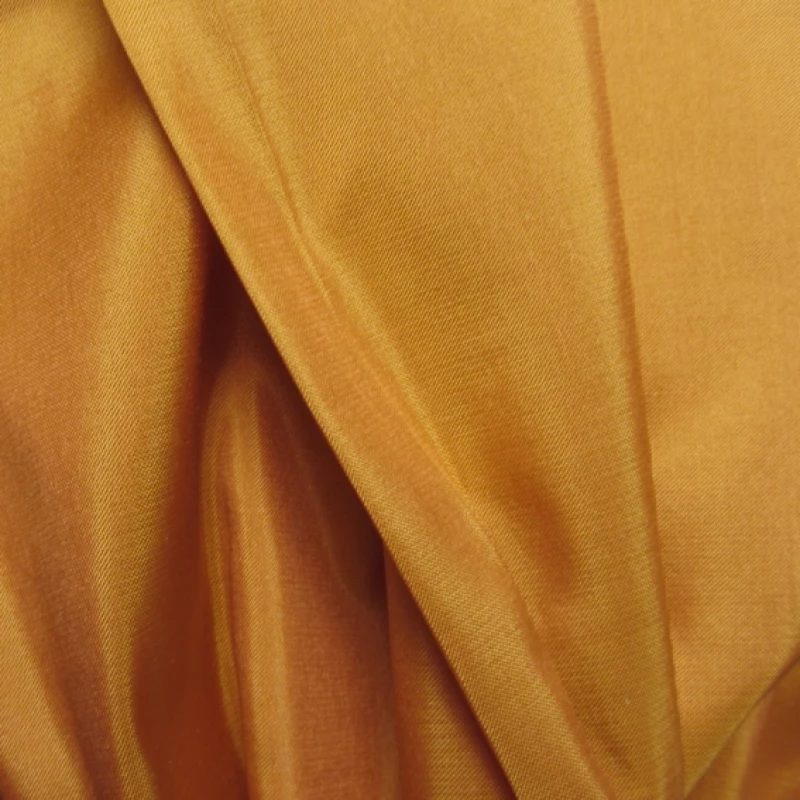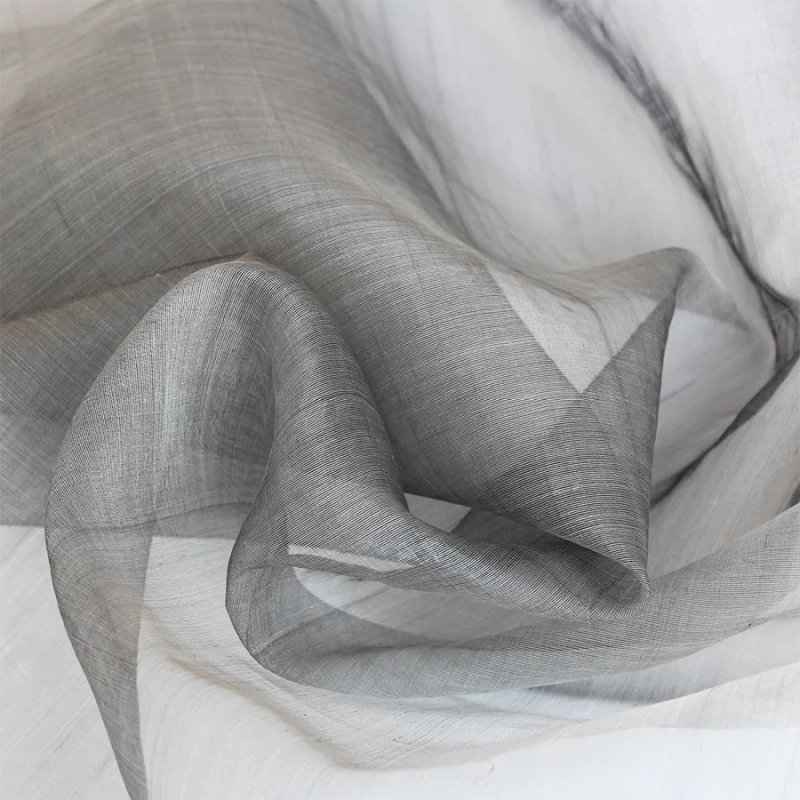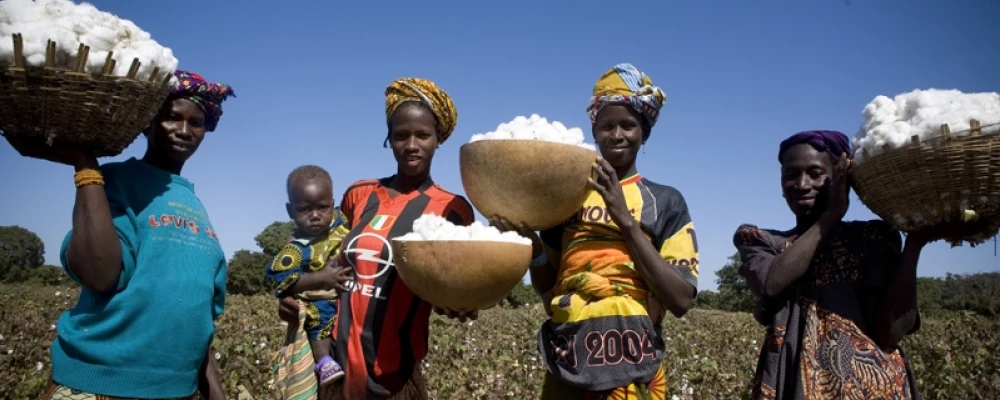
How To Fight Injustice With Fair Trade Fabrics
For two weeks each year at the end of February and start of March - Fairtrade Fortnight - thousands of individuals, companies and groups across the UK come together to share the stories of the people who grow our food and drinks, mine our gold and who grow the cotton in our clothes. In this article we look at how fair trade relates to fabric - from fibre to production to finished garments - and how this movement is taking stock with recent tragedies of injustice caused by the pandemic and climate change.
Thumbnail image: Simon Rawles
In this article you will learn:
- What fair trade is
- Why fair trade is important
- If a certification is necessary for something to be 'fair trade'
- Where fair trade standards can be implemented throughout the textile and fashion supply chain
- Whether organic means fair trade
- What certifications you should look out for as a consumer or designer
What is fair trade?
Fair Trade is concerned with the ethical (social, economic and environmental) impact of consumer products. All materials and products are traded, and just as is expected on a daily basis with your own purchases, there should be a fair price paid between traders for each transaction. With this comes an expected value. For those at the bottom of the commodity chain - the growers, primarily - there tends to be exploitation, slavery and intense poverty so that the value is skewed, and that can also include value on life.
Fair Trade is now more than ever linked to the negative impacts of climate change. In an already unjust system, the dramatic changes to our weather system is causing destruction economically for farmers; without them, we do not have crops for food and fibre. However, the shock of the pandemic has brought mass disruption to global supply chains causing prices and market shares of commodity crops to drop. This means there is even less fair trade, and often less crops anyway as yields fail.
You can learn more about what fair trade is in our article from 2017, What Is Fair Trade? Trust The Symbol; Support The Worker but this refers just to the most recognisable standard, the Fairtrade International certification you will have seen on your bananas and chocolate, and the specific Textile Standard for cotton items. We will introduce you to some other certifications to help you obtain a broader perspective of how fair trade can support sustainable development.
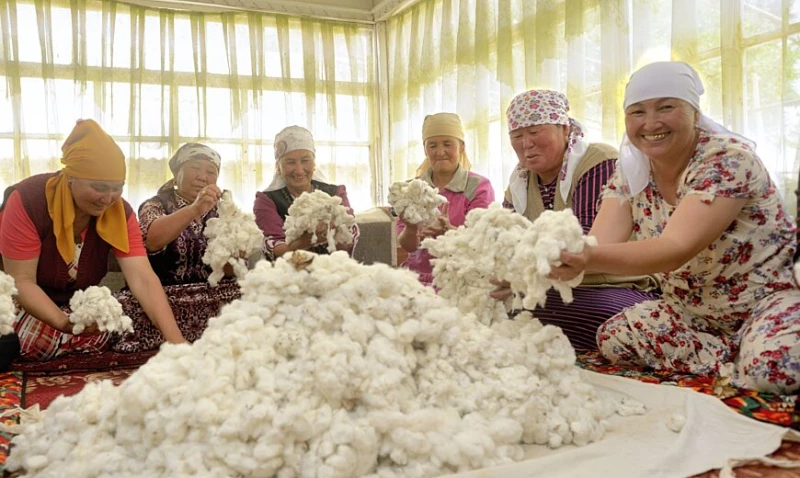
Why is fair trade important?
Fair trade contributes to sustainable development by offering better trading conditions, and also secures the rights of marginalised producers and workers often at the very bottom of the supply chain.
Fair trade as a standard will monitor:
- that there is a minimum price agreed and achieved for a farmer's crop
- that human rights are respected, which relates to decent working conditions for health and wellbeing
- that farmers meet certain requirements for GMOs, child labour, harmful chemicals and environmentally-friendly methods
Learn more about the impact that fair trade can have on reducing poverty and increasing empowerment, in this lesson from Jette Laddiges from the WFTO.
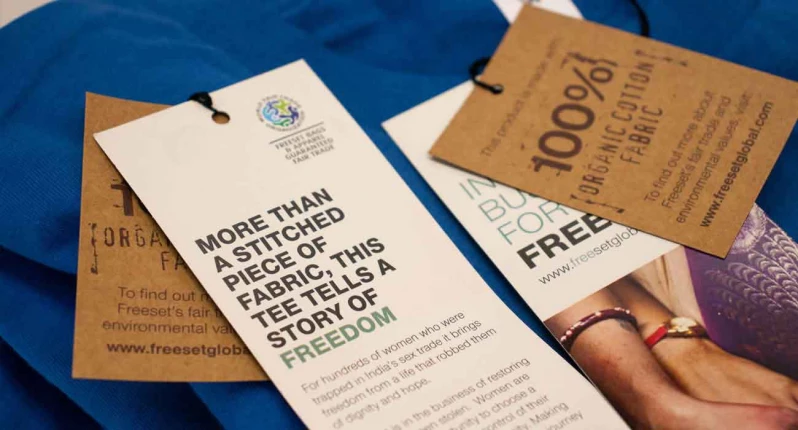
Can something be fair trade without certification?
All fair trade standards are set out to provide a framework for producers and suppliers. This framework helps to guide and give pointers on what the user could do next. Having a certification means that the final item can have a "stamp of approval" recognisable by consumers, so giving assurance. And all certifying bodies will use a third-party to aid in the verification, and along the way offer a network of support - for instance, the World Fair Trade Organisation's Member program that then sees benefits such as the adoption of fair trade practices elsewhere in the business e.g. profit model, HR.
However, it is possible to follow a fair trade system without paying the high cost of certification, something that can be out of reach for small producers or those that cannot yet forge a co-operative. It does mean that the customer will need additional information, such as images of the production set up, to improve transparency.
You could also look out for accreditation like the Fair Labor Association who work with companies and organisations to ensure fair labour practices and safe and humane working conditions throughout their supply chains, and though not stated as fair trade (because it is essentially about production rather than the trading of such goods) it is of benefit to be aware of what brands are doing.
Co-operatives
Fibre and fabric co-operatives are a regular occurence across the main textile producing hubs, such as India, Bangladesh and Cambodia. Where rural communities are set up to use local fibre and weave by hand, it can be helpful to be part of a wider hub that will help with trading, support in dealing with customers and general management of the team. These co-operatives may or may not be fair trade certified, but most likely they are open to you visiting, or will provide images; they are very eager to share their stories and participate in your enjoyment of their work.
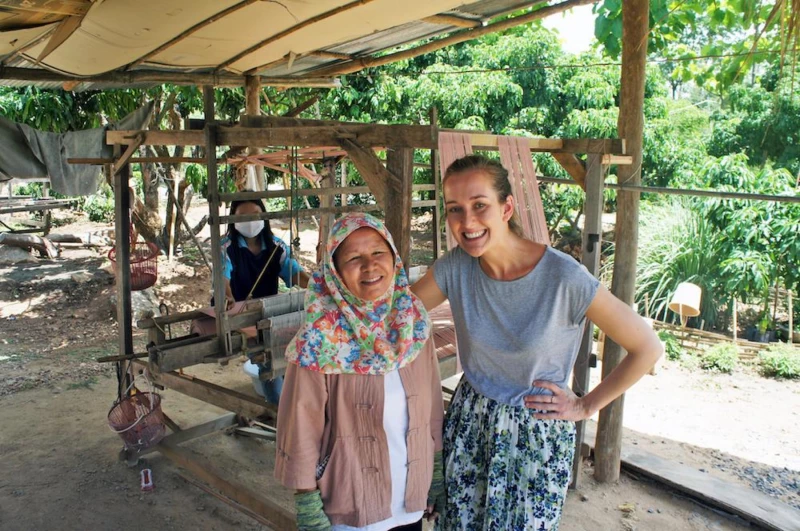
Fair trade production chains
Acknowledging the producers
“Our mission is to use the power of trade to ensure that people have livelihoods, but at the same time, to ensure that trade also brings justice in supply chains.” ~ Maveen Pereira, Traidcraft Exchange
Traidcraft Exchange is the partner organisation of Traidcraft, which people may be familiar with through their retail arm. The organisation has been operating since the 1970s and are one of the pioneers of Fair Trade globally.
Traidcraft partners with workers and artisans around the world to sell their products to wider markets - all under the conditions of Fair Trade, and, cutting out the middlemen. Their work advocates for the importance of organic farming, sustainability, and transparency to the lives of growers and artisans around the world. So here, fair trade regards the whole system to fight injustices.
When there is disruption to a supply chain, as has been felt globally with the Covid-19 pandemic, it is the workers and farmers who tend to have their work dropped without payment. They are usually sited in a country that has little in the way of worker rights too. So campaigning in the first place for a fairly traded product will increase the weekly income, and provide some stability.
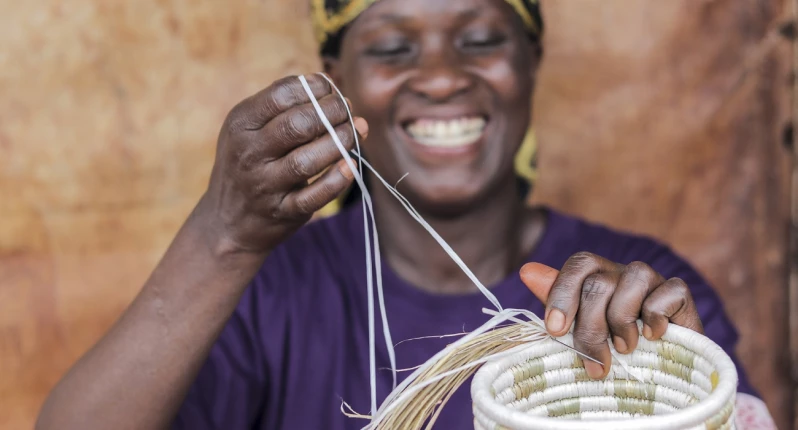
Affects on poverty
There are knock-on effects that can be missed when discussing the issue of poverty, with most focusing on hunger, however it has been shown to heighten exploitation and forced labour including of children, domestic violence, and risking of health to find alternative work.
By choosing fair trade fabrics, you are choosing a system where artisans have the freedom to be creative, choose flexible hours around working at home or in local small factories, and provide happily for their family and themselves. For the most part as well, it advocates for women's livelihoods and resilience.
If you are a business, learn more about how you can fight injustices with fair trade in this lesson from Traidcraft Exchange. You may also like to savvy up on what a homeworker is, and how fair trade can also help these hidden workers even without certification, in this lesson from Homeworkers Worldwide, Recognising Ans Supporting Homeworkers In Your Supply Chain. See below images of homeworkers in the Tamil Nadu shoe district and Tirupur garment district, images from Homeworkers Worldwide.
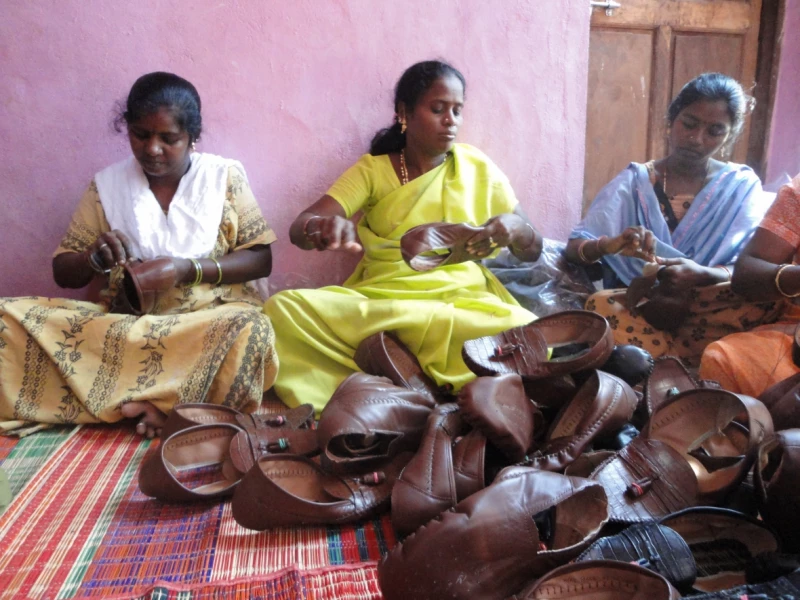
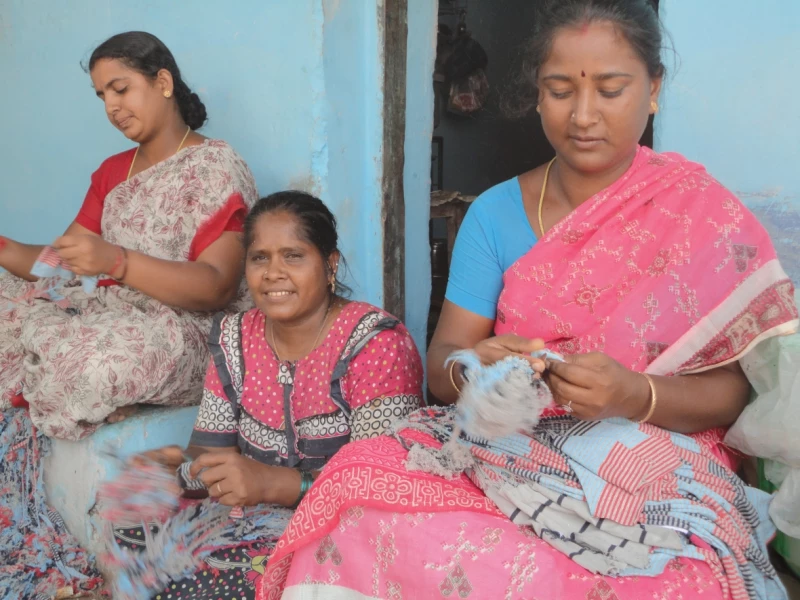
From fibre to product
The Fair Wear Foundation advocate for living wages, gender equality, and immediate access to rights across the garment production chain. Where fair trade under Fairtrade International focuses on the growers, bodies like the WFTO and Fair Wear Foundation will focus on how the products are created, which includes fabric to finished clothes. Fair Wear use third parties for auditing, and conduct checks at three levels: at the brand level to see which current business practices and management decisions are likely to create problems down the line at the factory level, and which are helping support better labour conditions; at the factories to inspect working conditions; and lastly, by hearing directly from the garment workers. Though this not necessarily in regards to the trading of products, their Code Of Labour Practices highlights living wages, which under the International Labour Organization's conventions, look to ensure a fair wage and above.
A brand may hold Fairtrade certification for their manufacturing unit, along with the fibres they use. As a Fairtrade certified cotton fibre may then be processed using harmful chemicals, a certification across the whole manufacturing can give assurance that in fact every principle of fair trade has been upheld. Learn more about this from our lesson with Head of Buying for People Tree, Working With Fair Trade Producers And Sustainable Fibres.
You can also gain an inside view of a fair trade manufacturing unit from garment producers Purnaa who are certified by the WFTO; check out this lesson from founder Corban who gives tips on Working With A Fair Trade Manufacturing Unit.
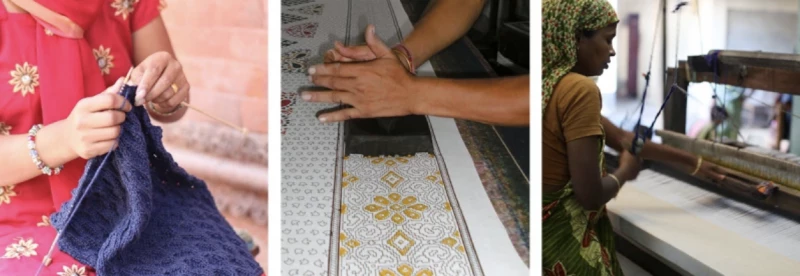
Does organic mean fair trade?
Although the terms organic and fair trade fundamentally refer to the social conditions of a person and the environmental conditions of the land, organic does refer solely to the way a crop is grown and processed. Fair trade on the other hand as we have tried to explain, relates to the people involved in the production of the crops and subsequent consumer products.
A fair trade product can also be an organic product, and you will either see both certificates in the form of logos, or you will receive a description from the supplier/retailer.
Learn more about the differences in our article, Myth Busting: Does Organic Mean Fair Trade?
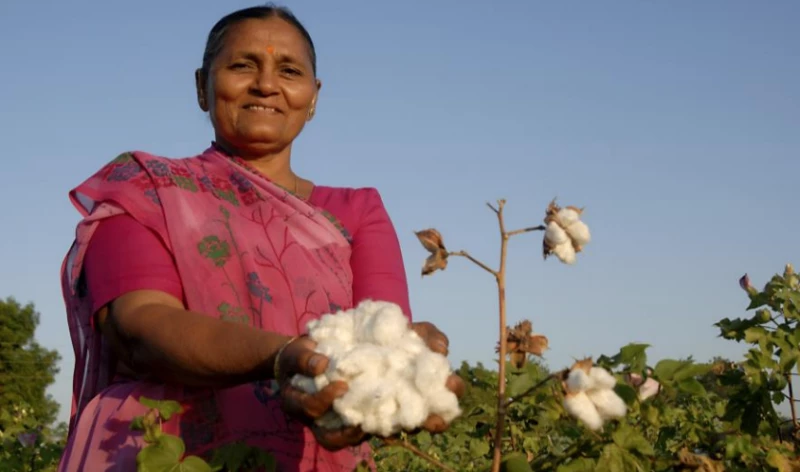
Fair trade certifications
When shopping, look out for the abbreviations or logos of certain accredited fair trade standards.
A standard is part of a framework that a business must follow, while a certification is the assurance that a third party has audited the business for the standards they have followed.
Standards
Fairtrade International
Fairtrade International works to share the benefits of trade more equally – through standards, certification, producer support, programmes and advocacy. Founded in 1997, Fairtrade International is a non-profit, multi-stakeholder association of 22 member organisations – three producer networks and 19 national Fairtrade organisations.
They coordinate activities for its member organisations and owns the FAIRTRADE Mark, a registered trademark of Fairtrade that appears on more than 30,000 products. Products bearing these Marks meet the internationally agreed social, environmental and economic Fairtrade Standards. The FAIRTRADE Marks are registered certification marks and trademarks owned and licensed by Fairtrade International.
Fairtrade Standards are designed to support the sustainable development of small producer organisations and agricultural workers in developing countries, and work to incorporate a holistic blend of social, economic and environmental criteria. The standards contain both core requirements and development requirements aimed at improvements that benefit producers and their communities. Traders are also covered by the standards, underscoring the commitments companies and businesses must make to contribute to sustainability in their supply chains and operations.
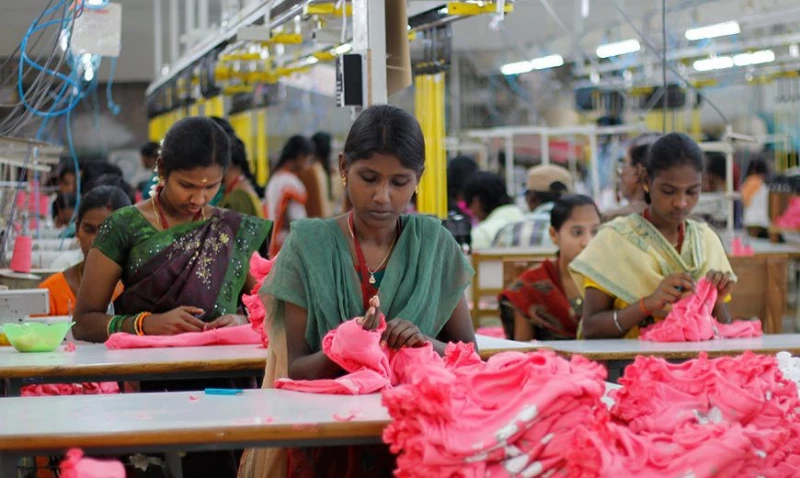
Fair Trade USA®
Rather than being solely for products produced and manufactured in the US, this movement was founded to support those in the Global South, yet now does work in partnership with those in the Global North too. They hold their own certification, Fair Trade Certified™.
Homewares brand Coyuchi have been working with Fair Trade USA® for many years. Learn more in our short interview with the CEO Eileen Mockus, Luxury Organic And Climate Beneficial Home Textiles.
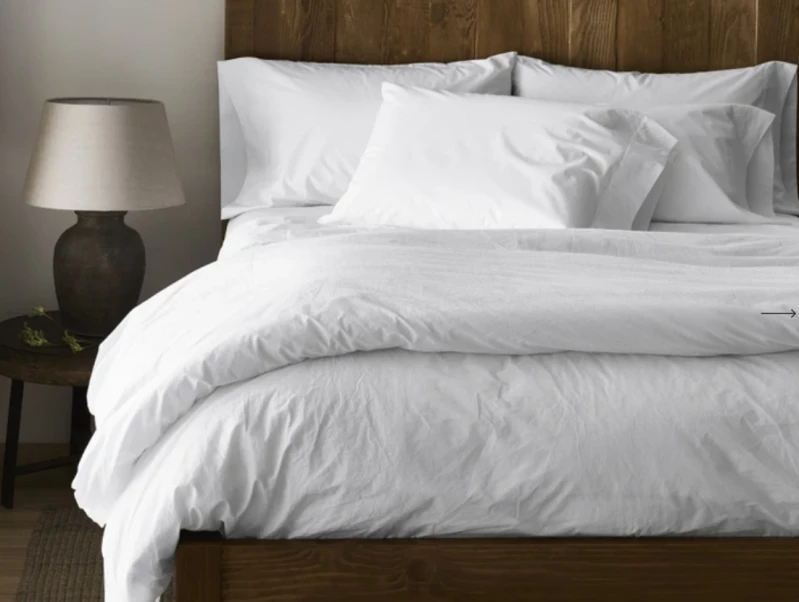
Certifying bodies
FLOCert
Since 2003, FLOCert have been supporting the integrity of Fairtrade by independently verifying that all companies involved in Fairtrade supply chains, beginning with Fairtrade producers, are meeting and maintaining Fairtrade standards.
They are an independent certifier of the Fairtrade International "mark", who audit and certify companies that are either manufacturers, growers and miners, as well as those businesses who would like to sell products with the Fair Trade logo. From FLOCert's search engine, you can see that there are currently 845 fair trade certified producers, traders, manufacturers and processors of cotton.
Note, an audit is an evidence-gathering process that aims to assess the compliance of an organisation and/or a product with certain standards). There's actually a really good glossary from FLOCert with explanations of terms you may not have come across before.
WFTO
The WFTO (World Fair Trade Organisation) are a global community of social enterprises that fully practice fair trade. Members will apply to be part of the community, and are verified (or not) according to the 10 fair trade principles. They currently host 355 enterprises, of which 54% have women in leadership roles. When looking for products you may want to stock in your stock, or for artisans to work with, the WFTO's Member database will help you discover those guarantee fair trade enterprises.
Fair Trade Certified™
This is a certification of the Fair Trade USA® movement, with products certified according to a robust system relying on independent, third-party evaluation and certification to hold businesses accountable to their fair trade commitments. Their standards are: Safe working conditions, Environmental protection, Sustainable livelihoods and Community Development Funds.
Join The Sustainable Fashion Collective® as a Professional Member to gain access to a 14 page glossary document of all ethical certifications and standards.
If you would like to access fair trade certified fabrics, we have a beautiful selection in our textile shop Offset Warehouse. They are cotton textiles certified by the WFTO for a female-led weaving co-operative, and also peace silk fabrics certified by Artisans Cambodia and the WFTO. Here are some examples:
